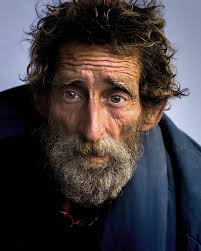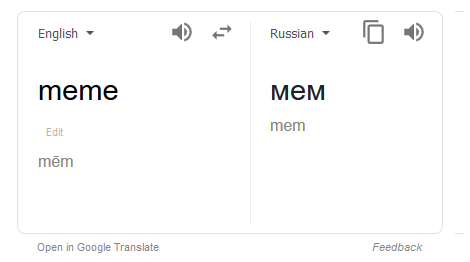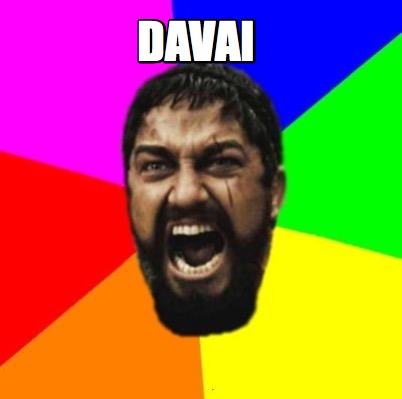 The Internet gets a lot of flack for showing the darkest sides of human nature. It is very easy to think that the Internet is a negative influence on society and bend to all the negatives. To me the Internet has long been a beacon of the best of humanity. Although it can be said that the Internet reflects the collective psyche of humanity. Just like a person the Internet is capable of both great darkness and great beauty, and like a person it is never a matter of one or the other but a mix of both. Today I want to discuss some of the huge positives of the internet which I feel are often overlooked.
The Internet gets a lot of flack for showing the darkest sides of human nature. It is very easy to think that the Internet is a negative influence on society and bend to all the negatives. To me the Internet has long been a beacon of the best of humanity. Although it can be said that the Internet reflects the collective psyche of humanity. Just like a person the Internet is capable of both great darkness and great beauty, and like a person it is never a matter of one or the other but a mix of both. Today I want to discuss some of the huge positives of the internet which I feel are often overlooked.
There are two things that stand out to me as the Internet becomes a more integral part of our lives. The first is that we are more and more being linked and defined by our common likes and hobbies and secondly that language is becoming much more globalized. Both these things are something that has crept up slowly as Internet usage has become more mainstream.
 Before the age of the Internet you would usually need to meet someone in person in order to share a hobby with them. Imagine meeting at a football stadium to share the common collective hobby of football. Even the most well meaning of us will judge each person we meet based on their appearance. Sometimes it is the much more obvious judgment based on race, sex or age but there are more subtle ones such as judging someone by their attire or by how well groomed they look. While most of us these days avoid the more obvious predjuces the more subtle ones are more difficult because we are often unaware of them. There was a man assaulted in a city near me recently. He was assaulted simply for being homeless. Well he wasn't homeless, he had a rugged beard and hair do and rugged cheap clothes so someone assumed he was a homeless person and decided to slam food in his face because of it. This is a case of something that happens every day in real life that people judge each other even without realising they are doing it. I am incredibly proud of my little brother after it became apparent one day that the friend he was telling me about was a homeless person. So many people see the dishevelled look of a homeless person and avoid them, or look down on them. My brother chatted with this person, without any prejudice of social class to the point of developing a friendship. Many people I know would have walked on by ignoring the homeless man, and many would not consider a homeless person to be their equal.
Before the age of the Internet you would usually need to meet someone in person in order to share a hobby with them. Imagine meeting at a football stadium to share the common collective hobby of football. Even the most well meaning of us will judge each person we meet based on their appearance. Sometimes it is the much more obvious judgment based on race, sex or age but there are more subtle ones such as judging someone by their attire or by how well groomed they look. While most of us these days avoid the more obvious predjuces the more subtle ones are more difficult because we are often unaware of them. There was a man assaulted in a city near me recently. He was assaulted simply for being homeless. Well he wasn't homeless, he had a rugged beard and hair do and rugged cheap clothes so someone assumed he was a homeless person and decided to slam food in his face because of it. This is a case of something that happens every day in real life that people judge each other even without realising they are doing it. I am incredibly proud of my little brother after it became apparent one day that the friend he was telling me about was a homeless person. So many people see the dishevelled look of a homeless person and avoid them, or look down on them. My brother chatted with this person, without any prejudice of social class to the point of developing a friendship. Many people I know would have walked on by ignoring the homeless man, and many would not consider a homeless person to be their equal.
Online this pre-judgement does not happen, and often cannot happen. I regularly play online games. I meet strangers on a regular basis and while there are bad apples, such is life, generally people are not just polite but friendly. This is because all they know about the other person is that they share a hobby. They don't know their race, social class, or gender unless voice is involved. All they judge each other on is the way they conduct themselves in a setting where negative conduct has little to no consequences. I find that online is a great forum to judge someone based on their true self. A place where there are no consequences to being an arsehole is a great way to find out how someone will behave when they can get away with behaving however they like. This has lead to me forming several friendships with people from all around the world. In the USA, OZ, and all across Europe. One day I was chatting to a group of friends from Europe, and I realised that I knew quite a lot about them, I knew their favourite games, foods they liked, where they live, political thinking, even their sleep and work schedules and lots more but in most cases I had no idea of the colour of their skin or their social class in most cases. This is because questions of the colour of someone's skin or financial means never became relevant. This is one of the great hidden beauties of the Internet, that we can get to know people and form bonds with them without ever getting the chance to judge them based on things that do not matter. The more the internet grows the more we recognise the person behind the keyboard and the more we forget about their real world borders or base definitions.
The way language is developing online is a miracle all of its own. There have been attempts made in the past to create a global language. Advocates of the constructed language Esperanto have long hoped that it would become an internationally recognised auxiliary language, but it does have a huge problem with adoption. That being the effort required to learn a second language, some thing which for many is a chore at best. While Esperanto has approximately 2 million speakers worldwide I don't see it ever becoming a naturally spoken global language. I do see a trend developing online with language which is slow and subtle but with the wider adoption of the Internet this trend is becoming more rapid. This trend is the trend towards us all speaking one language. No I'm not kidding there, and I do think it will take 100 years or more but slowly we are trending towards a single language one which is a blend of them all and a blend of new slang words as they arise.
 Let me give you a few examples. Most of us are familiar with the term "meme", which is defined as a unit of culture. Yep its not just a joke, it is a unit of cultural expression, which just so happens to usually take the form of a joke. "Meme" is a word which rather poetically has been spread by the Internet all around the globe and in many, many languages is exactly the same word. The word which these days means for an idea to spread virally on the internet has itself spread virally on the internet hardly changing from country to country. In fact I've observed foreign speakers using the word "meme" even when their native language has their own word for it and several languages have a similar word which is a derivative of "meme".
Let me give you a few examples. Most of us are familiar with the term "meme", which is defined as a unit of culture. Yep its not just a joke, it is a unit of cultural expression, which just so happens to usually take the form of a joke. "Meme" is a word which rather poetically has been spread by the Internet all around the globe and in many, many languages is exactly the same word. The word which these days means for an idea to spread virally on the internet has itself spread virally on the internet hardly changing from country to country. In fact I've observed foreign speakers using the word "meme" even when their native language has their own word for it and several languages have a similar word which is a derivative of "meme".
I've noticed in online gaming communities the term "Suka" which is a Russian swear word is in common use by members of all languages and also the Russian word "davai" which means lets go. Common terms which originated on the internet such as "lol" (laugh out loud),"gg" (good game) and "wp" (well played) are now often used in common speech and this is true all around the world. While far from a complete study in cross cultural linguistics I can't help but smile every time I see a new word come into common international use, something which is only made possible by the Internet.
Common terms which originated on the internet such as "lol" (laugh out loud),"gg" (good game) and "wp" (well played) are now often used in common speech and this is true all around the world. While far from a complete study in cross cultural linguistics I can't help but smile every time I see a new word come into common international use, something which is only made possible by the Internet.
Before the age of the Internet a word coming into common use would often take decades or longer to travel across even a country, which is exactly why we have so many regional dialects today. "Meme" having been coined before the age of the Internet came into popular usage so fast that many people will note that one day it did not exist and the next day it is a globally recognised term. Today you can say "meme" to a Chinese person who knows not a word of English and there is a good chance he knows what you mean. As the Internet becomes more and more prominent even in poorer countries we will continue to see an increasingly rapid trend of globalisation of words which come into popular usage and each time a new word does the rounds we are one step closer to a globalised language, one which is developing naturally thanks to one of mans greatest inventions, the Internet.
